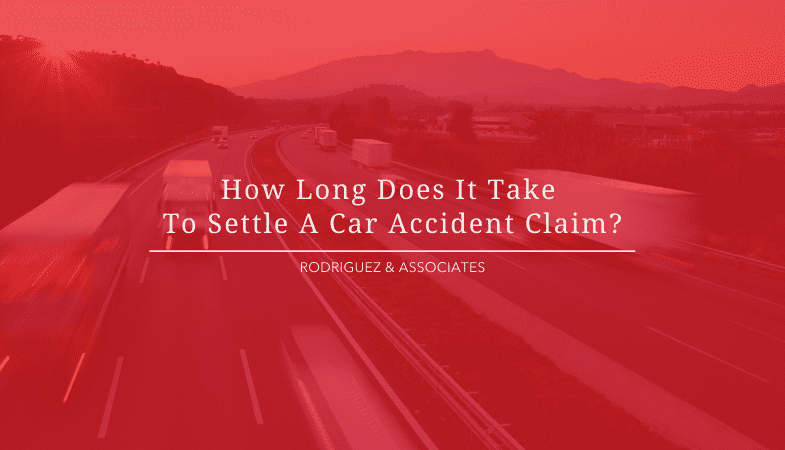Car accident claimants often wonder how long a case will take from start to finish. Depending on the situation, an accident claim can take anywhere from a few months to a few years. While many victims want to move past the accident as quickly as possible, spending extra time on a case can make a world of difference in the outcome and an individual’s recovery.
Factors that Determine the Length of a Car Accident Claim
Black and white cases with clear liability and a well-understood injury may settle in a matter of months without any delays. Other cases are not as clear. They require patience and perseverance to investigate, develop, and complete. Consider some of the factors that can lengthen the timing of an accident claim:
- The injuries involved. Many questions surrounding the injuries can keep a claim in limbo for weeks or months at a time. In the early stages of a claim, a physician may not know the recovery period for an injury or the extent of treatments needed to bring an accident victim to maximum recovery levels. A car accident attorney needs this crucial information to accurately outline damages for the injury.
Some injuries such as whiplash, chronic generalized pain, and soft-tissue injuries can raise questions with insurance companies involved in the claim. Since many fraudulent claims involve generalized injuries, insurance adjustors carefully scrutinize claims involving these injuries.
- Insurance company cooperation. Insurance companies will often take their time to respond to conduct investigations and communicate with claimants. However, they must adhere to certain time limits. In California, for instance, the insurance company must either deny the claim or offer a settlement within 40 days of receiving a proof of claim.
After the insurance company makes an offer or denies a claim, the injured individual must decide on a path forward. A claimant may appeal a denial, accept a claim offer, or reject it and either negotiate settlement terms or file a civil claim for compensation. Each communication with an insurance company may bring the claim closer to or further from resolution.
- Legal proceedings. If an insurance company does not offer a fair settlement, a plaintiff may initiate the civil claims process. Car accident lawsuits and other personal injury cases involve a discovery period and additional out-of-court negotiations. If the two parties still cannot reach a satisfactory offer, the case will likely go to trial. Each stage of the legal process takes additional time to complete.
In general, cases involving serious injuries, questionable liability, or a potentially high settlement value will take longer to successfully resolve than straightforward claims. While the timeframe of a claim may seem lengthy consider the following benefits of following through with your attorney’s advice not to settle:
- Additional time can improve a settlement offer. Many seriously injured car accident victims may need ongoing care and support for months or years after an accident. Taking the time to develop and fight for a fair settlement can greatly improve a claimant’s financial stability after an accident.
- Offset legal fees. Most personal injury attorneys work on a contingency fee basis, meaning they receive a percentage of the settlement. A larger settlement benefits both claimants and attorneys involved in the case.
- Create awareness. Some claimants pursue cases to raise awareness of particularly negligent driving behaviors and hold careless drivers accountable. A lengthy lawsuit can force insurance companies to follow good faith practices and prevent other drivers from making reckless driving mistakes.
A car accident claim timeframe can vary widely from case to case. Talk to your personal injury lawyer in Bakersfield to gauge the timing and the potential outcomes of a claim before deciding to accept a hasty settlement offer. Short, undervalued cases may not allow you to move past the incident as quickly or completely as you think. The closure and compensation that come from a well-negotiated claim may better support the financial, physical, and mental recovery process.
